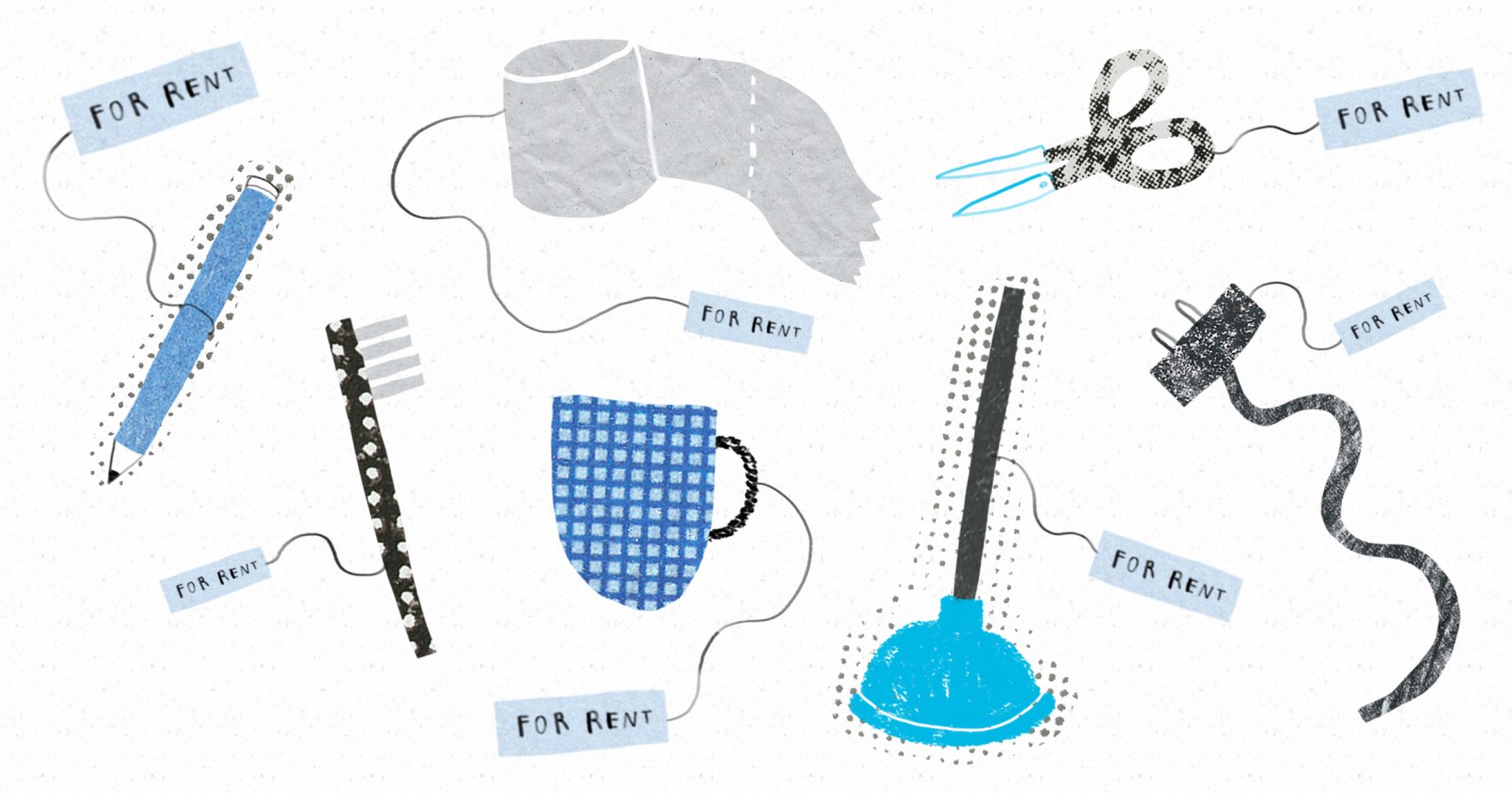
Strangers with Benefits04.06.2019
The sharing economy is pervading every aspect of our lives: from the way we get around, where we work, how we vacation, what we watch. But is sharing really caring?
If I were to visualize my own personal Hierarchy of Needs, sitting squarely at the bottom would be Community with a capital “C”. Call me a millennial, but I feel happiest when I have a sense of connection and interaction with those around me. Was it how I was raised, with a “sharing is caring” mentality embedded at a young age at school? Or is it because as we move further away from our family and roots, we yearn for the sense of belonging we had? And don’t forget to throw in the mix that we’ve grown up online, viewing the world through the lens of technology. It’s most likely an equal parts mix of influences, but suffice to say, a sense of community is so integral because it is the means by which we personally impact the world.
Owning big-ticket items like houses and cars is no longer wise or necessary. In reaction, millennials have become known for valuing experiences over materialistic things.
The key distinction between a millenial’s definition of community compared to previous generations is that the price of admission is intention—it’s not enough to passively belong to your community, but to develop a deep understanding of its needs in order to create better futures. A big catalyst for the difference in values millennials hold today was the Great Recession, causing them to be much more intentional not only with their finances, but all aspects of their lives.
For starters, it has changed their consumer behavior. Owning big-ticket items like houses and cars is no longer wise or necessary. In reaction, millennials have become known for valuing experiences over materialistic things. And with the rapid growth of technology and social media, the new currency is sharing experiences through photos and status updates.
In its purest form, sharing economy leverages technology to facilitate transactions between people with idle goods and resources, and people willing to pay for them.
This sharing mindset coupled with financial anxieties and aided by technology has enabled the rise of a new “sharing economy”. In its purest form, it leverages technology to facilitate transactions between people with idle goods and resources, and people willing to pay for them. In other words, “With the touch of a thumb, we can now borrow someone else’s home, bike, car, book, music, unused stuff,” says Joshua Becker of Becoming Minimalist. This new economic system provides a platform on which access can take precedence of ownership. “Ownership has never been less necessary.”
But will this on-demand culture move us into a post-ownership future and really change the way we live for the better?
A potential implication is the disruption of urban life, making cities more sustainable by changing how they design urban spaces, create jobs, reduce crime, manage transportation and provide for citizens. A new government initiative called Sharing City Seoul embraces the sharing economy to address vital issues like overpopulation and the climate crisis, and its goals are to boost prosperity, reduce waste, and rebuild trust-based relationships between people. One of the directors, Kim Tae Kyoon, says the recovery of community is an important aspect, since South Korea has the highest suicide rate in the 30 OECD countries. The rate is linked to the increasingly competitive, Western-style economy, so the plan includes a focus on funding and incubating sharing infrastructure and startups in an effort to change the way residents live.
In the future, businesses will have to differentiate themselves by providing meaningful experiences that connect people, building up trust.
And speaking of Western-style economies, another potential implication is a fundamental shift from capitalism. Economist Jeremy Rifkin says the sharing economy is the “first new economic system to enter onto the world stage since capitalism and socialism in the 19th century.” In the future, businesses will have to differentiate themselves by providing meaningful experiences that connect people, building up trust. It will be less about the physical products they sell, and more about how the brand becomes part of your identity, giving you membership to a particular socio-economic group. And they’re leveraging the sharing economy to help deliver those identities. The outdoor chain REI announced it’s expanding its rental program for things like camping gear, Ikea is leasing its furniture, and Marriott just introduced a home sharing program.
Businesses have long leveraged brand trust to ensure their survival, but what does trust mean in a peer-to-peer world? Another implication of the the sharing economy is how it’s redefining the word “trust”, an invaluable asset. Long gone are the days of “stranger danger”—that creepy white van might actually be your rideshare. Trust has been commoditized through reputation systems which provide instant “virtual trust.” And these reputations are very specific. Paolo Parigi, a Stanford professor who has worked at Uber says, “It used to be that extension of trust would cover different aspects of life. I trust this person. In the share economy, they’re very specific. You would trust an Uber driver to take you from A to B. You wouldn't trust him with the key to your house.”
As the sharing economy weaves into our social fabric, it is no longer a millennial preference, but a part of modern society. The ease with which we can connect and share is truly transformative. As for changing the way we live for the better? Time will tell, but it’s inspiring to help propel this innovative sharing model with community at its heart.
see also
- How Femtech is Capitalizing on Women
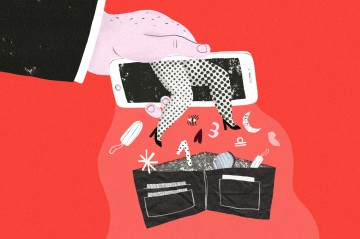
Trends
How Femtech is Capitalizing on Women
- Mick Champayne | Life After Privacy
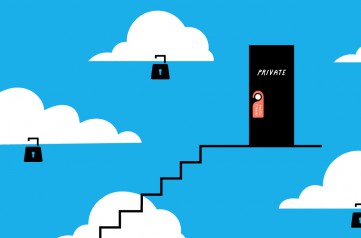
Trends
Mick Champayne | Life After Privacy
- Officials in the Chinese city of Luanzhou to Play Matchmaker for Single Residents in a Bid to Boost Birth Rates
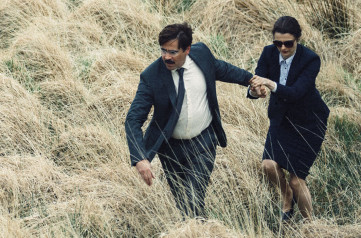
News
Officials in the Chinese city of Luanzhou to Play Matchmaker for Single Residents in a Bid to Boost Birth Rates
- Love and Frustration Amidst the Pandemic. A Conversation with Sam Levinson, the Director Behind "Euphoria" and "Malcolm & Marie"
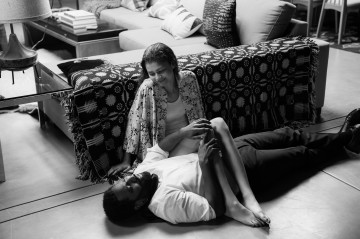
People
Love and Frustration Amidst the Pandemic. A Conversation with Sam Levinson, the Director Behind "Euphoria" and "Malcolm & Marie"
discover playlists
-
Instagram Stories PYD 2020
 02
02Instagram Stories PYD 2020
-
Original Series Season 2
 06
06Original Series Season 2
-
Papaya Young Directors 7 #MASTERTALKS
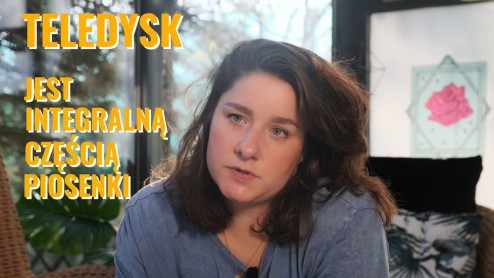 18
18Papaya Young Directors 7 #MASTERTALKS
-
Tim Burton
 03
03Tim Burton
